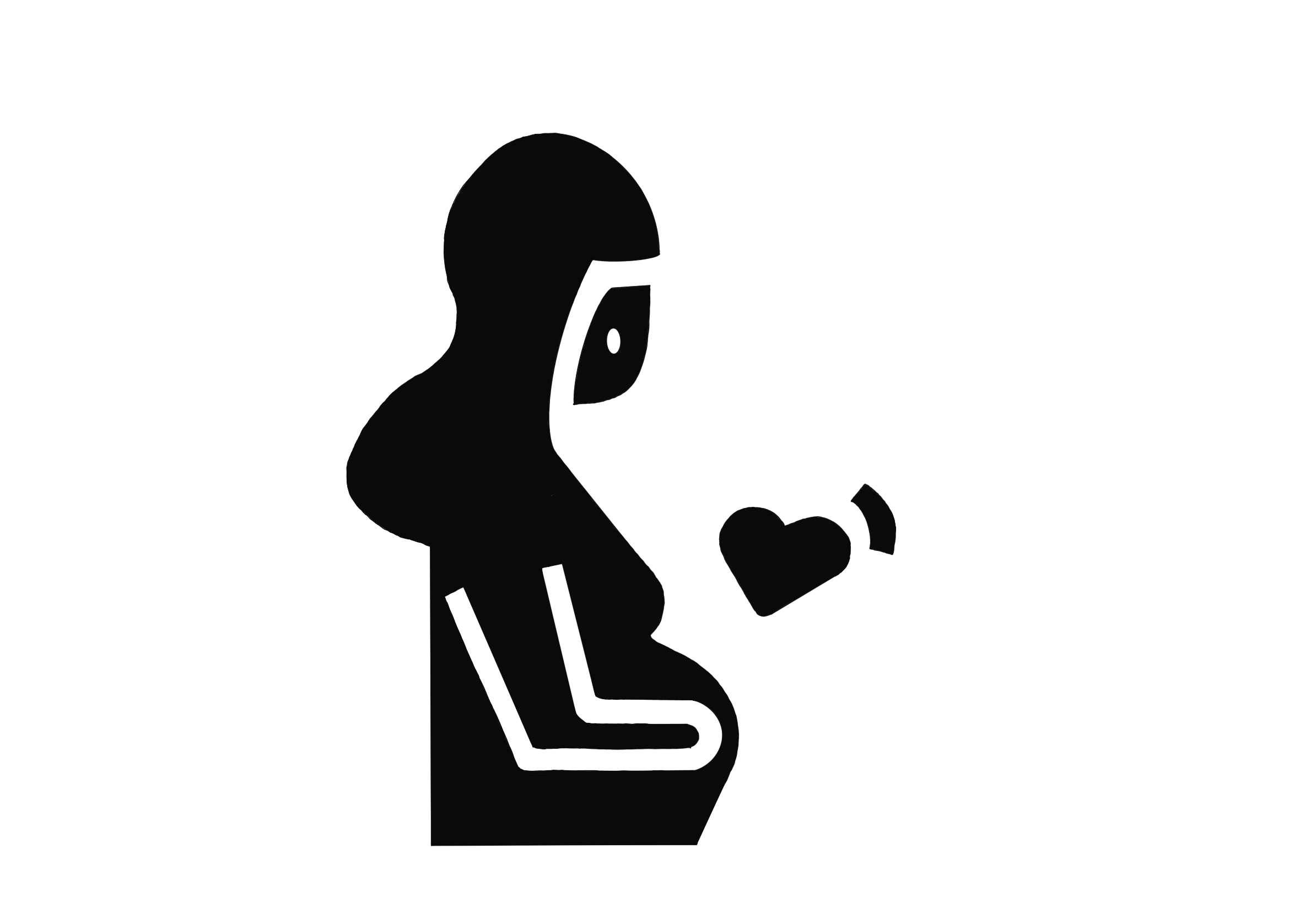

Consequences If You Didn't Well Know of Physical Preparation For Pregnancy...
The often overlooked yet crucial step in the journey of pregnancy—Physiological Preparation. In this enchanting expedition, prospective fathers and mothers are filled with anticipation. However, neglecting the groundwork for the body might lead to a cascade of consequences that cannot be ignored. Let’s delve into why physiological preparation plays such a pivotal role in embracing the arrival of new life.
- 🧬 Embryonic Development Issues: Physiological preparation involves maintaining healthy lifestyle habits and ensuring an adequate intake of essential nutrients. If an expectant mother lacks necessary nutrients, such as folic acid, in the early stages of pregnancy, it may increase the risk of abnormal embryonic development, leading to congenital defects.
Embryonic development issues refer to abnormalities that may occur in the early stages of pregnancy due to various reasons, resulting in structural defects, organ development problems, or chromosomal abnormalities. These issues can impact normal embryonic development, potentially leading to spontaneous miscarriage or birth defects. Common embryonic development issues and their scientific explanations include:
1. Chromosomal Abnormalities: One of the most common embryonic development issues is chromosomal abnormalities, especially during the formation of the fertilized egg. Scientific research indicates that chromosomal abnormalities may be a primary cause of spontaneous miscarriages. Common abnormalities include Down syndrome (Trisomy 21), among others, often resulting from errors in the chromosomes of the egg or sperm during fertilization.
2. Gene Mutations: Some gene mutations may lead to structural abnormalities or organ development issues during embryonic development. These mutations can be hereditary or may occur as new mutations during the formation of eggs or sperm. Such mutations can affect the normal growth and development of the embryo.
3. Implantation Issues: Occasionally, problems arise during the embryo’s implantation in the uterus, possibly due to abnormalities in the uterine lining, uterine shape, or other factors. If the embryo cannot effectively implant into the uterine wall, normal development cannot proceed.
4. Environmental Factors: Maternal exposure to certain environmental factors, such as radiation, toxins, or specific medications, may impact embryonic development. These factors can negatively affect gene expression, cell division, and organ development in the embryo.
5. Nutritional Deficiency: The nutritional status of expectant mothers in the early stages of pregnancy is crucial for embryonic development. Deficiency of key nutrients like folic acid may lead to issues such as neural tube defects.
These issues typically involve a combination of genetic, environmental, and maternal factors. Ongoing scientific research contributes to a better understanding of these problems and provides methods for prevention and intervention. Therefore, for couples planning pregnancy, comprehensive health checks, maintaining healthy lifestyles and dietary habits, and seeking timely medical advice from professionals are paramount to reducing the risk of embryonic development issues.
- Pregnancy Complications: Understanding Risks and Mitigation Strategies
The significance of physiological preparation during the preconception phase cannot be overstated. Certain lifestyle factors, such as poor dietary habits, lack of exercise, and excessive stress, may increase the risk of expectant mothers developing complications like gestational diabetes and hypertension. These complications not only impact the mother’s health but may also influence the growth and development of the fetus.
Pregnancy Complications refer to medical issues occurring during pregnancy that adversely affect the health of the mother and/or the fetus. These complications may involve multiple systems, including the circulatory, endocrine, and immune systems. Here are some common pregnancy complications and their scientific explanations:
1. Gestational Diabetes: This form of diabetes develops during pregnancy due to increased insulin resistance in pregnant women, leading to inadequate insulin secretion. Elevated blood sugar levels increase the risk of diabetes and other complications for the mother and may also impact fetal development.
2. Pregnancy-Induced Hypertension: This includes gestational hypertension and hypertensive disorders during pregnancy. These conditions may lead to the mother developing hypertension, increasing the risk of cardiovascular and cerebrovascular diseases. Pregnancy-induced hypertension may also result in fetal growth restriction and other complications.
3. Anemia During Pregnancy: Due to the increased blood volume required for fetal growth, pregnant women may experience an imbalance where red blood cell production fails to keep up, leading to anemia. Anemia affects oxygen supply to the mother’s body and negatively impacts fetal growth and development.
4. Depression During Pregnancy: Depression occurring during pregnancy is a mental health issue influenced by hormonal fluctuations, physical changes, and anxiety about the future. It has potential implications for both the mother’s and the fetus’s health.
5. Polyhydramnios or Oligohydramnios: The normal amount of amniotic fluid is crucial for fetal development. Abnormalities such as too much or too little amniotic fluid may result from placental issues, maternal chronic diseases, or other factors. This can lead to preterm birth, fetal developmental problems, or even stillbirth.
The occurrence of these complications often involves genetic, environmental, maternal health, and lifestyle factors. Scientific research delves into the mechanisms behind these issues, aiding healthcare professionals in identifying risk factors early and implementing effective prevention and intervention measures to reduce the impact of complications on maternal and infant health. Therefore, early prenatal check-ups, prudent dietary and lifestyle management, and guidance from healthcare professionals are paramount in preventing pregnancy complications.
- Pregnancy Complications: Understanding Risks and Mitigation Strategies
The significance of physiological preparation during the preconception phase cannot be overstated. Certain lifestyle factors, such as poor dietary habits, lack of exercise, and excessive stress, may increase the risk of expectant mothers developing complications like gestational diabetes and hypertension. These complications not only impact the mother’s health but may also influence the growth and development of the fetus.
Pregnancy Complications refer to medical issues occurring during pregnancy that adversely affect the health of the mother and/or the fetus. These complications may involve multiple systems, including the circulatory, endocrine, and immune systems. Here are some common pregnancy complications and their scientific explanations:
1. Gestational Diabetes: This form of diabetes develops during pregnancy due to increased insulin resistance in pregnant women, leading to inadequate insulin secretion. Elevated blood sugar levels increase the risk of diabetes and other complications for the mother and may also impact fetal development.
2. Pregnancy-Induced Hypertension: This includes gestational hypertension and hypertensive disorders during pregnancy. These conditions may lead to the mother developing hypertension, increasing the risk of cardiovascular and cerebrovascular diseases. Pregnancy-induced hypertension may also result in fetal growth restriction and other complications.
3. Anemia During Pregnancy: Due to the increased blood volume required for fetal growth, pregnant women may experience an imbalance where red blood cell production fails to keep up, leading to anemia. Anemia affects oxygen supply to the mother’s body and negatively impacts fetal growth and development.
4. Depression During Pregnancy: Depression occurring during pregnancy is a mental health issue influenced by hormonal fluctuations, physical changes, and anxiety about the future. It has potential implications for both the mother’s and the fetus’s health.
5. Polyhydramnios or Oligohydramnios: The normal amount of amniotic fluid is crucial for fetal development. Abnormalities such as too much or too little amniotic fluid may result from placental issues, maternal chronic diseases, or other factors. This can lead to preterm birth, fetal developmental problems, or even stillbirth.
The occurrence of these complications often involves genetic, environmental, maternal health, and lifestyle factors. Scientific research delves into the mechanisms behind these issues, aiding healthcare professionals in identifying risk factors early and implementing effective prevention and intervention measures to reduce the impact of complications on maternal and infant health. Therefore, early prenatal check-ups, prudent dietary and lifestyle management, and guidance from healthcare professionals are paramount in preventing pregnancy complications.
- Elevated Risk of Miscarriage: Navigating Factors and Mitigation Strategies with Scientific Precision
Unfavorable lifestyles and physiological conditions can heighten the risk of miscarriage. Factors such as smoking, excessive alcohol consumption, an unhealthy diet, and lack of exercise may contribute to early pregnancy loss, imposing a significant psychological burden on both prospective fathers and mothers.
The term “elevated risk of miscarriage” refers to an increased probability of spontaneous fetal loss during pregnancy. Miscarriages typically occur within the first 20 weeks of pregnancy, with a higher risk during the early stages, specifically the first 12 weeks. Scientific research has unveiled a spectrum of factors that may contribute to an augmented risk of miscarriage:
- Advanced Maternal Age: Age stands out as a crucial factor. Statistical data indicate that expectant mothers aged 35 and above face a higher risk of miscarriage compared to their younger counterparts. This is associated with a decline in egg quality and an increased likelihood of chromosomal abnormalities.
2. Chronic Diseases: Expectant mothers with certain chronic diseases, such as diabetes, hypertension, may face an increased risk of miscarriage. These chronic conditions can exert negative effects on the health of both the embryo and the mother.
3. Chromosomal Abnormalities: Chromosomal abnormalities in embryos constitute a primary cause of spontaneous miscarriage. Embryos with chromosomal abnormalities are often naturally selected for miscarriage in the early stages of pregnancy, ensuring the continuation of development only for healthy embryos.
4. Uterine Issues: Structural abnormalities or conditions like fibroids in the uterus may impact embryo implantation and development, thereby increasing the risk of miscarriage.
5. Unhealthy Lifestyles: Unhealthy lifestyle choices such as smoking, excessive alcohol consumption, and substance abuse elevate the risk of miscarriage. These factors can adversely affect maternal health, influencing the normal development of the embryo.
6. History of Previous Miscarriages: Women who have experienced previous natural miscarriages, particularly multiple occurrences, may face an elevated risk of miscarriage in subsequent pregnancies.
7. Infections and Diseases: Certain infections and chronic diseases, such as endometritis and cytomegalovirus infection, may contribute to an increased risk of miscarriage.
Scientific research has extensively explored the causes of miscarriage, with the mentioned factors representing only a fraction of the complex interplay. It is crucial to emphasize that most natural miscarriages result from inherent issues in the embryo, often challenging to prevent. However, maintaining healthy lifestyle habits, timely treatment of chronic diseases, and avoiding adverse environmental exposures contribute to reducing the risk of miscarriage. Regular check-ups and guidance from healthcare professionals before and during pregnancy are paramount for early detection and management of potential risk factors.
We’ve delved into why physiological preparation is paramount for prospective fathers and mothers. We’ve come to understand that it’s not just about welcoming the arrival of new life but ensuring the smooth progression of the entire pregnancy, providing a healthy and joyful environment for the baby.
Neglecting this crucial step could lead to various adverse consequences, ranging from developmental issues in the embryo to an increased risk of miscarriage, imposing significant psychological and physiological burdens on both partners.
Therefore, let us collectively recognize the importance of physiological preparation, not only for your future baby but also for your own happiness and well-being. In this journey of preparing for parenthood, face challenges hand in hand, exert joint efforts, and believe that you will usher in a family filled with love and joy. Wishing every prospective father and mother the ability to radiate the most beautiful light in this marvelous journey of life.
Related posts:
- You Must Know The Reason Important of Physical Preparation For Pregnancy. Embark on a transformative journey into parenthood with our blog! Uncover the 8 essential physical preparations for a blissful pregnancy. Elevate your understanding and embrace the joy of expecting. Dive...
- Healthy Pregnancy Diet and Nutrition You MUST Know! The gestational period stands as a pivotal phase for the healthy development of a baby, where good diet and nutrition become an indispensable part of ensuring maternal and infant well-being....
- Why “Psychological Preparation” is important for Pregnancy?? The arrival of a baby is a miraculous event in one’s life, and the emotional preparation before and after pregnancy is the key to embarking on this marvelous journey. From...
- Life’s Transformative Journey For Pregnancy : Embracing the Arrival of Your Baby and Navigating Shifts in Time, Energy, and Emotions Having a child is a significant life change that profoundly affects marital relationships and family life. Understanding and accepting these changes are of utmost importance. Whether it's welcoming the first...
